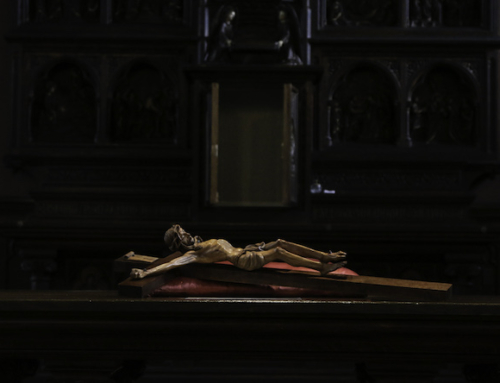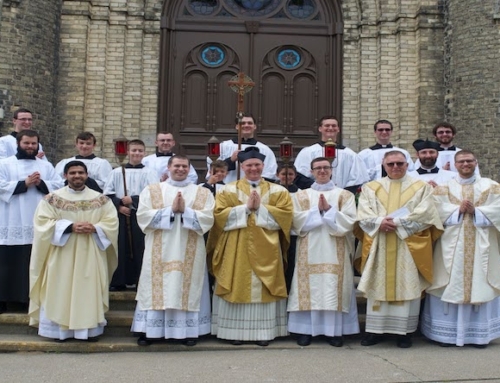Aquinas and the Fathers: John Damascene
This post is part of a series on Saint Thomas Aquinas’s reception of the wisdom of the ancient Church. To learn more about the inspiration behind the series, you can read its introduction here. To read more posts in the series, click here.
My Father, if it is possible, let this cup pass from me; yet, not as I will, but as you will. (Matt 26:39b)
When Jesus prayed in the Garden of Gethsemane before his Passion, he renounced what he willed in obedience to the Father’s will. Yet this raises a question that the Church Fathers and Saint Thomas Aquinas attempted to resolve: How can Jesus, who is God himself and perfectly obedient to the Father, will anything as man that is opposed to the Father’s will? For if he did will anything of the sort, his human will would already be sinful for departing from God’s will. But if Christ did not have such a will, then it seems he could not renounce his will, as he clearly does.
To answer this question, Saint John Damascene, who adapted his thought from Saint Maximus the Confessor, distinguishes between thelesis and boulesis. He identifies thelesis as the natural power of willing that someone has. That power, to will something, has natural objects—such as, in the case of human beings, to live. Christ has a natural power of willing, and through that power he would ordinarily will to live.
According to Damascene, whereas thelesis describes the power to will something, boulesis describes what someone actually wills: that this person actually seeks to attain what he wills. Christ has a human power by which he naturally would will to live (thelesis), but instead he actually moves to obey the Father and submit himself to those who crucified him (boulesis).
The difficulty with this picture, however, is that Jesus would not be renouncing something he actually wills or desires. Rather, he’d merely be renouncing something that he could (and would normally) will. Thus, he in fact is renouncing no actual will at all.
For this reason, Aquinas reassigns the terms thelesis and boulesis. Neither of them refers to the power of willing this or that good. Rather, thelesis describes the act of willing an end—something that is good in itself. Yet, not everything that I wish for in this way moves me to do anything about it. That is, I do not intend every good end that I will. For instance, suppose I will to live for 175 years. Too bad. I might will that good in the sense that I wish for it, but I never intend it because there are no means that I can choose by which I can accomplish that end. Every act of thelesis is a wish, but not every such act is an intention accompanying a choice of means.
If thelesis describes the will for an end, boulesis describes the act of willing the means to an end. In order to bring about the end I will through thelesis, I will the means to that end through an act of boulesis—an act of choice. But, unlike thelesis, every act of boulesis involves the person moving himself to do something. Then, upon choosing the means, the prior act of thelesis for some good becomes not only a wish but also an intention.
Jesus in the garden actively wills (thelesis) to preserve his life because he naturally wishes for something that is good in itself. That is not against God’s will: God made us so that we would naturally wish for good things. But Christ also wills (thelesis) to be obedient to the Father and save the human race, which involves choosing (boulesis) to submit to suffering and death.
In this way, Christ’s will is in perfect conformity to the Father’s will, and he has a will that he renounces. Jesus wills (thelesis) to preserve his life. But he renounces it in the sense that he does not intend to preserve his life because that would involve choosing (boulesis) to reject the Father’s will—his will would move him against the Father. Instead, he intends to lovingly obey the Father (thelesis) by choosing (boulesis) to submit himself to the cross.
With this explanation, Aquinas gently adjusts the Fathers’ solution and opens up something of Jesus’ heart, making it a little easier for the rest of us to know him and imitate his example of loving obedience to the Father.
✠
Image: Martin Johann Schmidt, Christus am Ölberg







